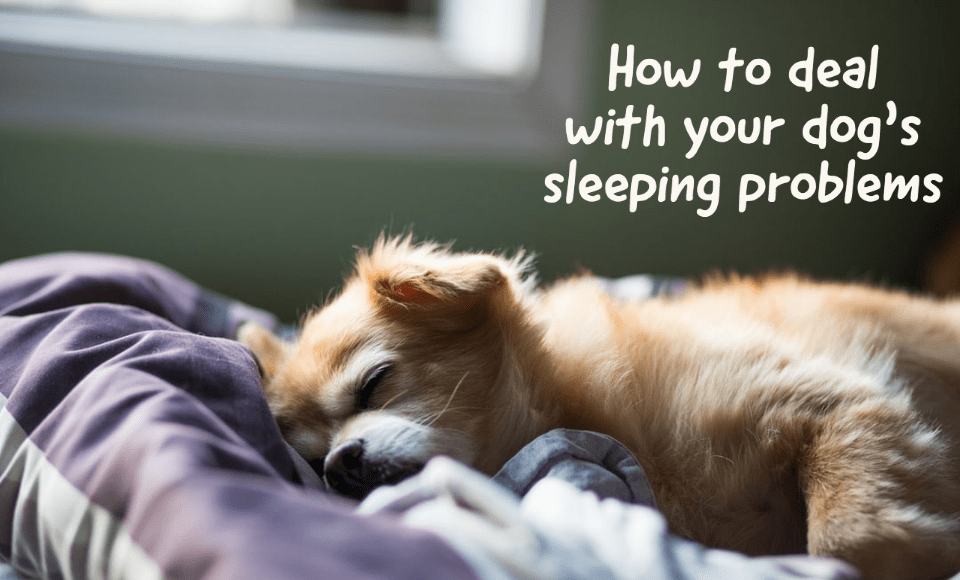Is your dog experiencing problems sleeping at night? This is a rather common problem seen most frequently in older dogs. When the lights go out, your dog may wander around the house and become generally restless and uneasy. If your dog is accustomed to sleeping in the same room with you, this can cause disruptions in the sleep patterns of both of you. Is there a solution?
What causes dog sleep problems? Because this tendency is seen most commonly in aging dogs, one factor may be caused by changes in your dog’s hearing and vision. If his vision is dimming, your dog may become confused at night when the lights go out and start to wonder through the house. If its hearing is a problem, your dog will naturally use visual and smell stimuli to establish his landmarks and in the dark, he lacks visual cues. This can cause a dog to become uneasy and insecure.
Your dog may also experience cognitive decline as he gets older similar to the Alzheimer’s syndrome seen in humans. It’s not uncommon for Alzheimer’s patients to wonder aimlessly through the house. The same is true of a dog with cognitive dysfunction. Another reason for poor sleep patterns and night time wandering is a medical problem which causes pain or discomfort. Any dog that shows a drastic change in sleep patterns should be evaluated by a veterinarian.
If your dog is experiencing sleep problems, here are some suggestions on how to handle them:
How to handle dog sleep problems: Give your dog daily exercise
A brisk walk early in the day for at least thirty minutes can help your dog release excess nervous energy which may contribute to doggy insomnia. Exercise also causes a natural endorphin release which gives your dog a sense of well-being and may help him to feel more secure. Don’t walk your dog too close to bedtime since this may further aggravate sleep problems.
How to handle dog sleep problems: Give your dog his own space
Establish a sleeping area for your dog in a room with a comfortable temperature. Dogs tend to become restless if they’re too hot. Ideally, your dog should have an enclosed area to sleep in since dogs tend to feel more secure when in a smaller space. You may want to consider a dog igloo or a cage that has a roof for added security. Encourage your dog to lie down on his bed at the same time each night and give him a small treat and praise him when he does.
How to handle dog sleep problems: Provide sensory aids
Dogs with declining vision may feel more comfortable if a small light is placed by their sleeping area to make them feel more secure and less isolated. Dogs with hearing problems may benefit from the sounds of soothing music coming from a radio. This added sensory stimulus can make a significant difference in your dog’s ability to sleep.
How to handle dog sleep problems: Give a bedtime massage
Give your dog a soothing, fifteen-minute massage around bedtime. This can help to calm your dog and make him feel more secure. There are a variety of videos and books that show the exact procedure for doing this.
Sleep problems in dogs can often be resolved by making a few simple changes to his sleeping quarters and this can mean better sleep for the whole family.

